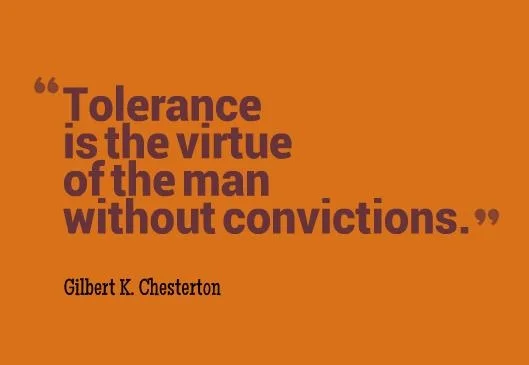
Insights on health, resilience, and recovery by Christina Santini, Clinical Nutritionist specializing in eating disorder and addiction recovery.
It’s about decoding the patterns beneath the struggle. You’re not broken. But life can split you open, and what feels like damage is often an invitation to see differently. Not everything needs fixing; some things need translating. Elements of Recovery is a space for those ready to step out of old loops and into lasting clarity. Here, I put words to what most people feel but can’t explain — the undercurrents that drive self‑destructive patterns and the shifts that make relapse no longer an option. Because true recovery isn’t just surviving. It’s living a life aligned with who you are — with clarity that moves you forward, and up.
Ready for something different? Book a video consult and let’s begin with what’s real. Learn more here.
- Addictions
- Anorexia
- Anxiety
- Binge Eating
- Biochemistry Balancing
- Body Image
- Bulimia
- Depression
- Digestion
- Eating Disorders
- Emotional Management
- Faith
- Intimacy
- Intuitive Eating
- Meditation
- Natural Medicine
- Natural Pain-Killers
- Pregnancy
- Self-Worth
- Sleep
- Stress Tools
- Superfoods In Recovery
- Transformation Keys
- Trauma + Abuse
- Yoga Tools
It’s the rush of flying down Highway 101, top down, hair untamed by the wind.
It’s carving through Venice skatepark, weaving past the Peter Pan crowd who refuse to grow up.
It’s sprinting barefoot along the shoreline, salt water biting at your calves, the ocean daring you to go faster.
It’s the warm sun-rays against the nape of your neck on a warm Summer day.
It’s holding an animal close to your heart and feeling its little breath on your skin. Having complete trust that you will take care of it forever. And we promise we will do so, forever. We promise - and hold tighter.
In a world where self-promotion is currency, we rarely ask what it’s costing us.
Being addicted to attention might be the most widespread pandemic of our time.
And chances are, you struggle with it too. It’s an addiction I despise, and yet one I have to check myself for every once in a while as well. It’s far too easy to get sucked into the validation trap.
“I feel broken,” she whispered.
“I feel like someone needs to glue me back together.”
Her voice trembled. Her body folded in on itself like it had forgotten how to hold its own weight.
I nodded. Not because I agreed, but because I remembered. The collapse. The ache. The illusion that something inside has shattered beyond repair. But it is not true. We are not broken. We break, yes.
When we settle in life it guarantees disconnection from ourself and from others. We won’t feel loved or at peace in life, we will feel trapped.
It will feel like self-erasure.
Our nervous system craves resonance, not just presence. We need spaces, places and/or people in our life, who move at our depth, pace, and emotional voltage.
“I have trauma”, he said, while looking me straight in the eye. I anxiously shifted my legs and touched my ankle, as if it held a magic key to slow down the pace at which this conversation was moving. What I feared was about to happen: an emotional purge.
You can’t transform what you keep at arm’s length. Real change only happens when you fully inhabit where you are, not where you wish to be. The obsession with constant goal-setting, with “what’s next,” keeps us from absorbing the lessons right in front of us. Until we learn what this moment is here to teach, we’ll keep looping through the same patterns. Progress isn’t blocked by circumstance, but by our refusal to engage with the present.
The lack of any emotional attachment has become the golden standard of today's societal demands. Seemingly in contrast to the political-correctness movement which gets offended by all and sundry, we also live in a time, where we are supposed to be "cool" with everything - cool with every type of douche-bag behavior. We are supposed to pretend like, “hey, I didn't even notice” - like, “I am so cool, you can't even get to me”. And that, right there, is the issue. When we give in to this nonsense apathetic BS pattern, we lose. Not only do we lose ourselves and our standards of how we are willing to be treated, we become liars. Everyone knows, yet we all pretend, that we are all so goddamn fine with these sick no-standard standards. We don't date anymore: we hang out. We don't wait anymore: we hook up. We don't talk anymore: we text. We don't feel anymore: we have sex, we do drugs, we eat too much, too little, or we purge our food and emotions up.
Most of us are busy trying not to get rejected. When we don't risk rejection, we blend into the many shades of depressing gray that makes up the sky of hazy february. Greatness is standing out. Greatness is daring rejection. Only what I give to you can I have myself. The spiritual field is opposite that of the material. And this is the key. Instead of wanting, we need to create abundance from a mustard grain of faith. If I want kindness, I need to be it. If I want love, I need to give it.Everything is faith based in the spiritual realm and nothing is ours til we give it freely.
If we have unrequited affection for someone it is emotional masochism. You cannot love someone who doesn't love you - that is merely obsession and infatuation at best. And well, at worst, we are busy realizing our childhood trauma of never feeling good enough, lovable and so forth. Why we unconsciously seek out people who will confirm our automated negative selv-talk. And because we are comfortable with our own trashtalk and believe this to be true about ourselves - that we are not worth it - we stay, we endure and hang on like a cat to the curtain tails. It is painfully pathetic.
I can't stand the #metoo campaign sweeping over us at the moment. It is toxic to both men and women alike. And I absolutely do not feel empowered as a female by this sort of feminist-wannabe campaign. On the contrary, I feel victimized, disempowered, pathetic and weak. I feel as if I am literally being brainwashed into believing, I cannot say no to anyone challenging my standards.
We mirror people we like, as it shows them that we respect them and also a certain level of admiration. If their response is favorable to us mirroring them, then they will also typically mirror us. This makes us feel like we are in rapport. We feel safe. This may not necessarily be the case - especially if we are both being people pleasing.
It is a funny thing in life. Oftentimes we spend so much time in the mud, that we think we are drowning. When the only thing we need to do is to stand up. The water is rarely more than an inch and yet we lie facedown, drowning in only an inch of water and dirt. It often doesn't require much to change the path we are on, if it leads to nowhere. Yet in our mind we make it out to be quicksand. How do we save each other when we can't even master the simple task of saving ourselves? How do we experience the freedom we so long for, if we constantly choose to remain in the chains that comes with addiction? Why do we make things so complicated, when fact is, we always have the option to just stand up and walk away. Walk away from what doesn't serve us anymore. And yet, how many of us ever look up to see that there is another way than how we have been living our life in denial? Imagine if breaking the chains of addiction was as simple as standing up and walking away. And maybe it is - when we want something bad enough, we will find a way - we will make a way. Faith is the only thing that separates us.
There are generally two types of people when it comes to neediness. There are those of us who pretend to not have any needs, not need anyone, to be completely and utterly self-reliant. Lies. And then there are those of us, who are constantly demanding some sort of "hit" to feel validated. Please like me.
"You can't forget anything that hurt so badly...(...) It's not possible to forget anybody you have destroyed." - James Baldwin from Another Country 1962. I was reading this tidbit of a snippet taken out of context just the other day. It struck me how many things we may think are "forgettable" but indeed they leave forever imprints.
In the movie Pay It Forward there is a scene where Helen Hunt says to Kevin Spacey, "I can't reject you, you're too quick for me". Kevin Spacey has some emotional stuff from his past that causes him to have intimacy issues with getting close to anyone incl. Helen. I thought this was a poignant reminder of how we tend to unconsciously exhibit the very behavior towards ourselves - and quite often also towards others - that we fear the most.
Sometimes we think that addiction is the stereotype presented to us in movies. We see the husband that suddenly goes bankrupt and his beautiful wife leaves him. So he is left in the gutter with stubbles and a bottle of Jack. We also see the drug addict as the person with one too many tattoos, portrayed as scarily gaunt, getting their money from shady business and spending their weekends at raves. These stereotypes are not what addiction usually looks like. Many addicts are high-functioning. Addiction is incredibly common amongst CEOs and people who need to keep up the pace of a life that is based on money, power and relentless ambition. Someone who is high-functioning will still have a job, maintain relationships and have their money matters in order. The high-functioning addict will appear to have their life together.
In a time where there are no limits to what people will post online about their private life in order to try to be unique, impressive, fascinating, attractive, gain validation and whatnot, the most simple way to actually be unique is to avoid the trap of oversharing.
"Don't eat that. Stop.", he said as he smacked the back of her hand, reaching for the bread basket. Oh man. I wish I was making this stuff up. But no. A very good friend of mine from New York dated this guy for 2 - not minutes, hours, days, weeks or, heck, even months but 2 full years. Now this may seem like an innocent little thing to say. Although I think I would bite the hand of any person trying to keep me away from the bread basket.
"If you develop an eating disorder when you are skinny to begin with, you go to the hospital. If you develop an eating disorder when you are not skinny to begin with, you are a success story."How low have our standards of success gotten? So low that means of self-destruction are celebrated. It is sad that we accept this type of imprisonment, but fact is - we are the only ones who can stop allowing it to happen.
The absolute worst kind of asshole, is the political correct asshole. I cannot stand this political correct nonsense that is sweeping over us like a summerwind at the moment. There is nothing worse than when we play the passive-aggressive card. It's like we won't even admit we are being assholes and then we blame someone else for our own misfortune. It's complete nuttiness. It stunts our growth because we get stuck in this victimization mindset. Most of us have had a point in our life - at the bare minimum - when we played the victim, until we realized that the only common denominator in every single one of our interactions and circumstances - well, that was us, ourselves, you, me, myself and I. And if we had just an ounce of common sense - which by the way is not very common - then we decided then and there to stop the whining and rather solve whatever needed to be solved. I don't believe we all can or should get along with each other. But I do believe we should all respect each other's differences of opinions.
So last week we went through 4 celebs that struggled addiction and found recovery. Well, it's not a secret that Jon Hamm went through a breakup with his longtime girlfriend in 2015. In his recent interview with InStyle he states that, "being single sucks". This being 2 years post his breakup, he is going through some tough stuff no doubt. Considering Jon Hamm's past issues with addiction, it's times like these that will show whether he has come out on the other side or not. He is such a brilliant actor so let's hope so. Anyone who's gone through a breakup regardless of being okay with separating ways and all, still knows what type of unavoidable nutty trainwreck you turn into in the time following. Yeah no, that's never fun. Add to that addicts have a very low pain tolerance level and you got yourself a nice little relapse setting.
Substituting one addiction for another does not break the fundamental chains of addiction. It is well-known in the addiction field, that if we do not master to rewire our brain to find new paths of pleasure, relapse is only a feeling away.
We cannot drug our way out of addiction.
That said, instead of going cold-turkey (which taps right into our black-white addictive thinking), it might prove very useful to take it step-by-step and beginning our journey into recovery by substituting our primary drug of choice for a secondary. Substitution can be an important player in helping us not getting overwhelmed by the intense withdrawal that often leave us completely drained, lethargic and quite often suicidal. But what does the science say about medication-assisted treatment for addiction?
Addiction has become epidemic - it knows no face, race or gender. And no one is too rich, too smart or too good-looking to escape its claws. Read on to find out which 4 surprising celebs struggled and overcame addiction.
Well, that's actually a very simple question to answer. And no, it is not society, it's not skinny models or social pressure. And then again - those things can all be the trigger that offsets the gun aka the underlying disposition. Still, if you are not biochemically wired to be vulnerable to using and abusing food and starvation, you will never turn to food as your method of coping with life. You might instead turn to dopamine enhancing behaviors - i.e. certain drugs, smoking (both serotonin and dopamine inducing), excessive shopping, sex addiction or even kleptomania. Women actually have only 52% serotonin of that of men. This means women are super vulnerable to anything that depletes serotonin - we don't have a buffer, so to say. Serotonin is easily to influence through food and starvation.
Anxiety is a chemical reaction in the body. This reaction becomes chronic regardless of our psychological toolbox, if we are deficient in some core nutrients involved in the production of the calming neurotransmitter called GABA. Click on to read more about nutrients involved in feeling anxious.
Last week we talked about the dangers of opioids and how this is the last resort for pain management. There are quite a few other options that have actually been shown to be just as efficient as opioids against pain and with no nasty side effects. One such is the hot chili pepper. The reason cayenne works for pain is due to its contents of capsaicin. The endorphin rush capsaicin triggers makes this compound an effective remedy for pain.
Addiction affects about 26 percent of those using opioids for chronic non-cancer pain; 1 in 550 patients on opioid therapy dies from opioid-related causes within 2.5 years of their first prescription. In 2014, prescription drug overdoses, a majority of which involved some type of opioid, killed more Americans than car crashes (49,714 compared to 32,675). There are safer ways to tackle pain. It is simply due to uneducated health care that we are using opioids as our primary painkiller. Opioids should never be used for anyone who has a history with addiction, as it is one of the most difficult meds to wean off of and super deadly at that. Reference: Forbes 2016: Drugs Are Killing More Americans Than Road Crashes
Often we think of addiction as if there is something wrong with us. As if somehow we are just not made for this life. As if somehow we have not been equipped to deal with the pain, the hurt, the losses and whatever else, we inevitably will encounter through a lifetime in this fragile, paper-thin skin we are in. I don't think that's the case. People who struggle with addiction are not broken. Those of us who struggle with addiction are simply reacting to the many facades and masks, that we tend to wear to fit into a sick society.
One of the most freeing things in life is to be able to discover other people for what they are, without worrying about whether they like us. However, few of us are willing to like someone without there being a clear indication that the other party will like us back. That's risk-avoidance behaviour and ultimately not very satisfactory - because we hold back how we feel to avoid rejection.





























We live in a time of the performative arts. Even if we never auditioned for acting school, social media has cast us all into roles. Platforms reward performance over presence. And we’ve built a stage where everyone’s performing, just not everyone knows they’re doing it.